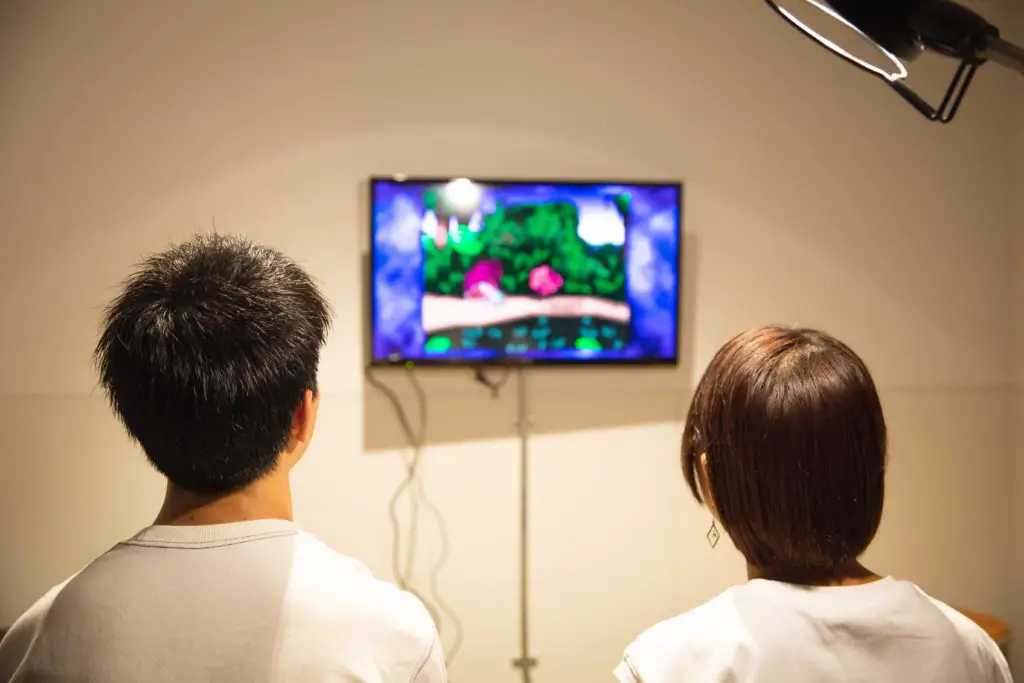Several studies have reported the role of video games in child behavior with some saying that the kind of games teenagers play may affect their behavior. However, research outcomes have been mixed. That discussion has been reignited after a mother in Atlanta shot her teenage son several times.

The police were called to an apartment complex on Sparks Street SW where they found the 17-year-old boy with several gunshot wounds. He was taken to Grady Memorial Hospital for treatment and his condition at the time of this report is unknown. The incident happened on Thursday, June 29, 2023, around 10:20 p.m.
According to the findings from preliminary investigations, 34-year-old Jaquana Butler got into a heated argument with her son over a video game console when she pulled out a gun and shot him several times.
ALSO READ: Gaming Disorder Surges Among Children As Young As 13 NHS Confirms
She was arrested and detained in the Fulton County Jail on charges of reckless conduct, aggravated assault, and cruelty to children. The police have called on anyone with information on the incident to come forward.
Although it is not yet clear how a video game console became the subject of the argument, there have been previous reports on how video games were making children uncooperative. We also reported earlier this year how the NHS was grappling with a rise in gaming disorders among children as young as 13.
Video games are making children rude and uncooperative

In 2012, Daily Mail published a damning report on how video games were making children “rude, uncooperative, and aggressive”. In the report, a 15-year-old boy admitted that he spends as much as 18 hours a day playing video games—including during his school holidays.
The British Association of Anger Management surveyed 204 children between nine and eighteen years and their parents regarding their use of video games. Forty-six percent of the surveyed parents said their sons or daughters became “less cooperative” after they started playing video games.
Forty-four percent said their children became “rude or intolerant towards others”, 40% said they became more impatient, 36% reported heightened aggression, 29% mentioned an increase in mood swings, and 26% said their children had become more withdrawn. Twenty-eight percent of the surveyed parents admitted that their children spend as much as 16 hours or more every week playing video games.
Mike Fisher, the director of the British Association of Anger Management, who provides one-on-one sessions for children said at that time that some of the children referred to the association by their parents were playing away their school and home life. Most of the children being treated were between 13 and 17 years old.
ALSO READ: Google Removes Controversial Slavery Simulator Game After Over 1000 Downloads
“The typical situation that we are faced with is where the young person gets irritable and aggressive when they’re asked to clean their rooms, do their homework or to come to dinner when they want to finish their game,” said Fisher.
It is possible that the Atlanta incident may have a link to video game addiction. However, Jaquana can be accused of having anger issues too. According to Fisher, “Parents also have to learn to deal with the aggression of the young person because often their anger holds the whole family hostage”.
What should parents do when their children are addicted to video games?

Video games have diverse themes. While the majority of them have educational content, the most popular ones like Mortal Kombat, Call of Duty, and Grand Theft Auto have negative themes and are strewn with blood and violence. These games are not recommended for children under 18 years. However, children below this age often indulge in these games.
According to pediatrician Dr. Cindy Gellner, “Children exposed to violence have shown that they can become immune or numb to violence, imitate the violence they see, and show more aggressive behavior with greater exposure to violence.”
Dr. Gellner said there is no magic wand to getting children off video games and back to classrooms. However, she suggested that parents should have their children do their homework in places where their parents “can see them and know what they are doing”. She also suggested checking their grades frequently to see if there are gaps.
Steps to prevent video game addictive behavior in children

Rather than resorting to violence to the point of shooting your child, there are steps that parents that have children addicted to video games can take to help their children to enjoy games without the divisive social behaviors. Some of the tips highlighted by the American Academy of Child and Adolescent Psychiatry include:
- Setting screen limits for children
- Removing video games from children of preschool age
- Making sure children only play video games after doing their homework and chores
- Checking the Entertainment Software Rating Board (ESRB) ratings to make sure they are appropriate in both content and development level
- Encouraging children to take part in other activities, especially physical activities
- Playing video games with the child to build connection and discuss the content
- Setting ground rules on game content and playing time within and outside the home
- Making sure that children play in public areas of the home rather than in their bedrooms
- Monitoring the child’s online interactions and making children aware of the risks of online games
- Being the child’s role model by being conscious of what games you play and how long you play them
Parents should also work with a pediatrician or school counselor to help refer the child to a qualified mental health professional if their concerns about their child’s addictive behavior to video games don’t improve.
Do you have a child that is addicted to video games? How did you deal with the problem? Share your thoughts using the comment box below.
Remember to share and bookmark this website to stay up to date on all the hottest news in the gaming industry.



